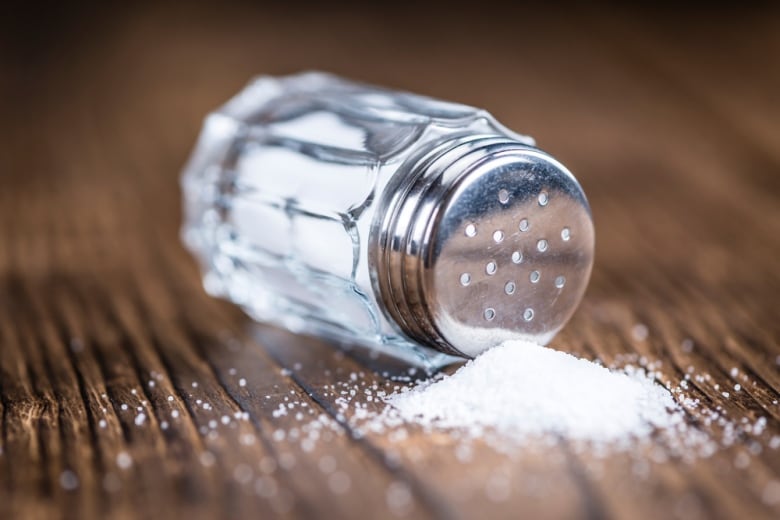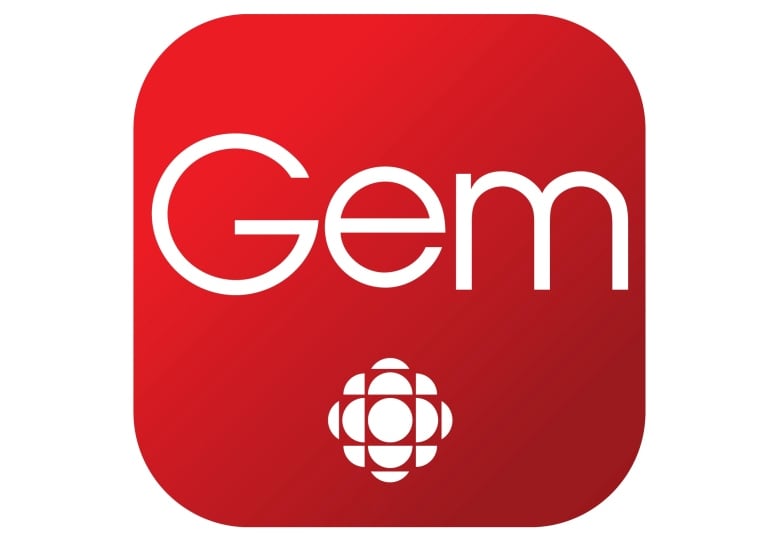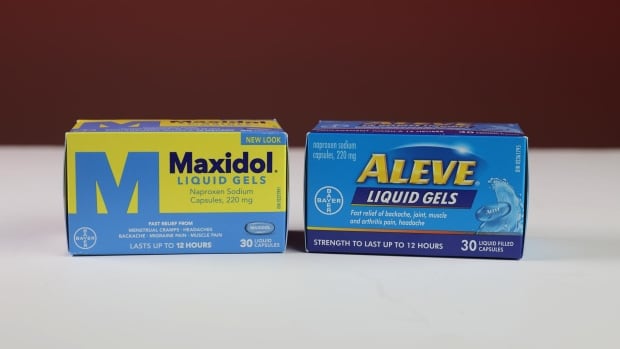Miss something this week? Don’t panic. CBC’s Marketplace rounds up the consumer and health news you need.
Want this in your inbox? Get the Marketplace newsletter every Friday.
Shoppers Drug Mart eliminates ‘pink tax’ on menstrual pain medication following CBC investigation
Marketplace was able to find multiple examples of the so-called ‘pink tax’ at popular retail stores that drive up costs for products marketed toward women, and even set up an experiment to see how consumers would react when the pink tax is front and centre.
Shoppers Drug Mart is taking action following an investigation by CBC’s Marketplace that found painkillers labelled as a treatment for menstrual cramps cost more than near-identical painkillers marketed for headaches and other pain.
The drugstore’s parent company, Loblaw, told Marketplace over email on March 15 that it “recognizes the importance of equity and access and will align the price of these products within a week.”
Marketplace found the two examples of the so-called pink tax after comparing products found in the painkiller aisle to those found in the feminine product section of various Shoppers Drug Mart locations across the Greater Toronto Area and online.
Maxidol and Aleve, both made by Bayer, had the same active ingredients, number of capsules and liquid gel form.
Aleve was regularly priced at just $13.99, and was purchased on sale for $11.49. Maxidol, however, rang in at $16.99.
A similar price difference was found with Life Brand’s naproxen sodium, with a product marketed to relieve menstrual cramps costing 50 cents more than a product marketed to help other pain. Both products had identical active and inactive ingredients.
Loblaw said the price difference for Bayer’s Maxidol and Aleve was because two different departments purchased the products and hadn’t done a pricing review between them. The company said the difference for the Life Brand products was because the manufacturer charges them more for the menstrual product. Read more
You’re probably eating too much salt. Here’s how to cut back

The World Health Organization (WHO) recommends we eat one teaspoon, or five grams, of salt per day.
But according to a recent report from the WHO, Canadians are eating, on average, 9.1 grams daily.
Dietary experts say more than 75 per cent of that salt is coming from restaurant meals and processed foods, and probably not from the salt we’re adding from the shaker.
Bakery products, processed meats and mixed dishes like pizza, lasagna and frozen dinners are big contributors to sodium in our diets, according to registered dietitian Samantha Chabior.
“These foods don’t actually taste very salty. So I like to kind of call them sneaky sources of sodium because they’re really unexpected,” she said.
Chabior says cooking at home using unprocessed foods will help reduce salt intake, and suggests cooking with these ingredients instead:
- Acidic foods like vinegar and lemon juice.
- Aromatics like ginger, garlic and onion.
- Fresh and dried herbs and spices.
- Pre-mixed salt-free seasoning blend Read more
Which restaurant meal is the biggest sodium shock? Marketplace revealed surprising dishes from popular restaurants. You can watch that episode on CBC Gem.
How scammers likely used artificial intelligence to con Newfoundland seniors out of $200K

As soon as she picked up the phone, Jane knew there was something wrong. Her grandson was on the other end, saying he’d been in a car accident and had been arrested. He sounded panicked.
The police found drugs in the car. Someone was seriously injured. He used his one phone call to contact the one person he knew would help him without judgment.
Jane — not her real name — was stunned, but promised to help without telling his parents. The phone was handed over to a police officer, who gave her instructions on how to post bail. Her unconditional love for her grandson cost her $58,350 by the end of the next day.
“I really believed it was him,” she said.
The Royal Newfoundland Constabulary says at least eight senior citizens lost a combined $200,000 to similar scams over a three-day period between Feb. 28 and March 2.
There have been reports of similar scams across Canada, with police saying a criminal network is suspected of targeting seniors from coast to coast.
But how is it possible for them to replicate actual voices? Turns out it’s quite easy, cheap and effective, according to Memorial University associate professor and computer security expert Jonathan Anderson.
“You can clone someone’s voice, and given the ability to do that, it’s not at all surprising that somebody would do that for nefarious purposes,” Anderson said. “It’s going to be more effective, especially while people get used to the fact that deepfake voices are a thing, and they are easily obtainable and easily accessible.” Read more
What else is going on?
Zellers is officially back.
Twelve locations are open across Canada, a decade after the discount chain vanished from the country’s retail landscape.
Shake Shack fans, rejoice!
The brand plans to open its first location in Toronto in 2024, with up to 34 more planned.
There’s a recall for some Nestlé infant formula due to potential bacteria contamination.
Check your cupboards for Good Start Soothe infant formula sold in 942-gram packages, with best before dates of July 18 and 19, 2024.
Marketplace needs your help

Do you roll the dice with gambling online? Ever had issues with promises or payout? We want to hear about it. Write to us at marketplace@cbc.ca.

We’re looking to put customer service to the test! Which industry do you think we should investigate, and why? Reach us at marketplace@cbc.ca.

Catch up on past episodes of Marketplace on CBC Gem.


